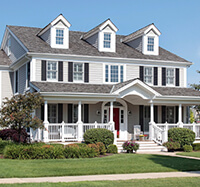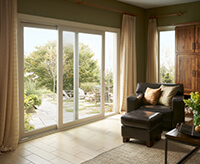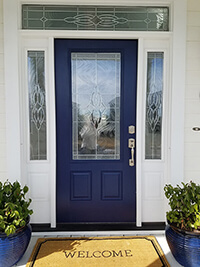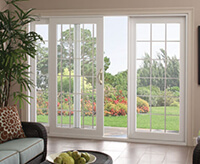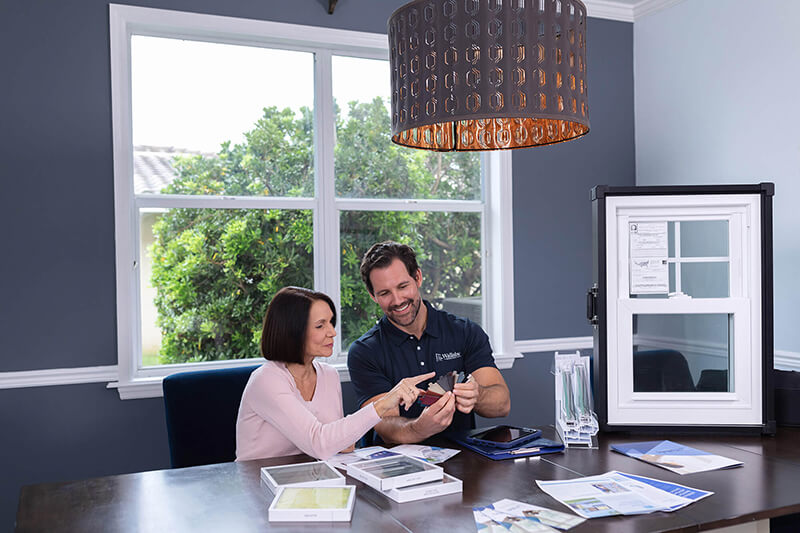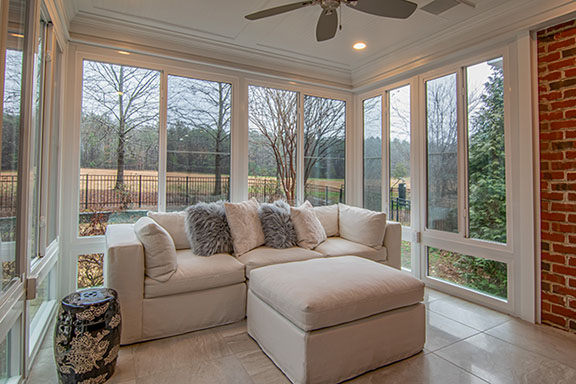
6 Types of Glass for Windows and Doors
We use our home for much more than a place to eat and sleep. We share our lives with our loved ones and our pets in our houses. We seek shelter, love, comfort, and peace inside our homes. We dream, make plans and surround ourselves with items that give our lives meaning. Skimping on quality or failing to replace damaged windows shortchanges our home’s value and our enjoyment of it.
Windows make our homes more attractive while letting in light and warmth from the sun. Ideally, the windows match the home’s style and are as nice to look at as they are to look out of. They also serve important roles in the safety, security, and energy efficiency of our houses.
Choosing windows for your home involves so much more than settling on frames, colors, and hardware. There are different types of glass to consider that offer different properties for different purposes.
Let’s look at six types of window glass that are available and how they would benefit your home.
Float Glass
All glass products start out as float glass. It is made from molten glass and takes the shape of large panels. It is used to create other stronger glass products because, by itself, float glass is weak and breaks easily. Float glass is completely even and provides an undistorted view, but those are the only reasons to use it in a residence. Since it is so fragile, other glass options are better.
Laminated Glass
This kind of glass is made by pressing a layer of PVB resin between two sheets of float glass. PVB is polyvinyl butyral, a resin that is used when items need to be bonded securely while maintaining strength, flexibility, and the ability to see through the materials as is the case with glass. The result is strong enough to add structural integrity while being more resistant to breakage. A kind of safety glass, laminated glass is often used for car windshields. When it breaks, the pieces of glass remain adhered to the PVB lining as opposed to falling apart in dangerous shards. Its ability to resist breakage during storms and to contain the glass if damage does occur make it an attractive option for homes.
Tempered Glass
Also made from float glass, the glass undergoes a process called annealing. It slowly cools the hot glass to relieve stress on the internal structure and to make it more durable. Annealed glass can be used for tabletops, basement windows, and cabinet doors. Tempering the glass after it has been annealed involves exposing it to temperatures as high as 1,148 degrees Fahrenheit to make the glass five times stronger than other types of glass. Tempered glass windows in homes are required for windows that are larger than nine square feet, framed less than 18 inches from the floor and higher than 36 inches above it, and there is a 36-inch walkway on both sides of the glass.
Insulated glass
Double and triple-pane windows can be insulated when gasses like argon or krypton are added between the panes of glass. The gasses reduce the rate of non-solar heat flow which makes the windows more energy efficient. If saving money on energy costs is a concern, the insulated glass may be a good option.
Obscured Glass
Just like it sounds, obscured glass is etched or beveled so that it can’t be seen through. Light can still pass through the glass so that shadows can be seen, but obscured glass is a great option for privacy in bathrooms and entryways.
Low-E Glass
Two types of coatings have been developed and can be applied to insulated glass to create Low-E glass. It is intended to minimize the passage of ultraviolet and infrared light through windows while still allowing visible light into the home. They block UV rays that can damage skin and cause clothing, furniture, and draperies to fade while keeping heat inside the home during colder months. They are often recommended for south and west-facing windows.
When it comes to choosing replacement windows, there are a few other factors to consider in addition to what kind of glass the window should be made from.
First, a higher price doesn’t mean higher quality. Consider the materials, energy efficiency ratings, and reviews from previous users. It’s okay if the right window for your home doesn’t break the bank.
Second, match your windows to the climate you live in. Your home will need stronger windows if you live in an area where hurricanes, tornados, and high winds are prevalent. Energy-efficient windows will keep you warmer and save money in colder areas.
Third, don’t overspend on unnecessary options or upgrades. Focus on the features that will add value to your home. For example, you may choose Low-E glass for energy efficiency but you might not live in an area that is cold enough to require triple glazing. When it comes to screens, those made from finer mesh will not obstruct your views or daylight.
Your home is one of the biggest investments you will make throughout your life. And our team of window specialists at Wallaby Windows will help you to choose the correct windows. We will even walk you through the details on how you can save money on your home insurance, by lowering your premiums or offering discounts if you install windows that can help reduce damage from storms and flooding.
